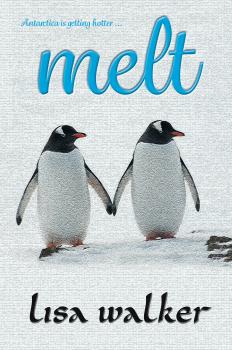ТОП просматриваемых книг сайта:
Lisa Walker
Список книг автора Lisa WalkerАннотация
Looks can be deceiving, and in a society where one's status and access to opportunity are largely attendant on physical appearance, the issue of how difference is constructed and interpreted, embraced or effaced, is of tremendous import. Lisa Walker examines this issue with a focus on the questions of what it means to look like a lesbian, and what it means to be a lesbian but not to look like one. She analyzes the historical production of the lesbian body as marked, and studies how lesbians have used the frequent analogy between racial difference and sexual orientation to craft, emphasize, or deny physical difference. In particular, she explores the implications of a predominantly visible model of sexual identity for the feminine lesbian, who is both marked and unmarked, desired and disavowed. Walker's textual analysis cuts across a variety of genres, including modernist fiction such as The Well of Loneliness and Wide Sargasso Sea, pulp fiction of the Harlem Renaissance, the 1950s and the 1960s, post-modern literature as Michelle Cliff's Abeng, and queer theory. In the book's final chapter, «How to Recognize a Lesbian,» Walker argues that strategies of visibility are at times deconstructed, at times reinscribed within contemporary lesbian-feminist theory.
Аннотация
Along the eastern edge of Africa, with a coastline hugging the Indian Ocean, lies the beautiful country of Tanzania. In one corner of the vast plains of this country, there is a small village called Kwala. Furaha lives in this village with his Mother. Together, they harvest maize, which they use to prepare their food, ugali. But when there is a drought and the maize stops growing, the whole village suffers. Furaha must find a way to make the rains return and save his village. Through this magical story which recalls ancient rituals, beliefs and fantasy, Furaha discovers a way to bring the rains back to his village.
Аннотация
Summer Wright organises her life down to the minute. And when boyfriend Adrian proposes marriage – on schedule – she will reach the peak of The Cone of Certainty. At least, that’s the plan – until adventure-show queen Cougar Gale intervenes. Suddenly Summer is impersonating Cougar in Antarctica: learning climate science on the fly, building an igloo, improvising scripts based on Dynasty, and above all trying not to be revealed as an impostor. But Summer finds it particularly hard to fool climate scientist Lucas Nilsson. Can Summer use her extreme project management skills to get Project Adrian back on track and make a success of “Cougar on Ice”? And what is The Krill Question anyway?



